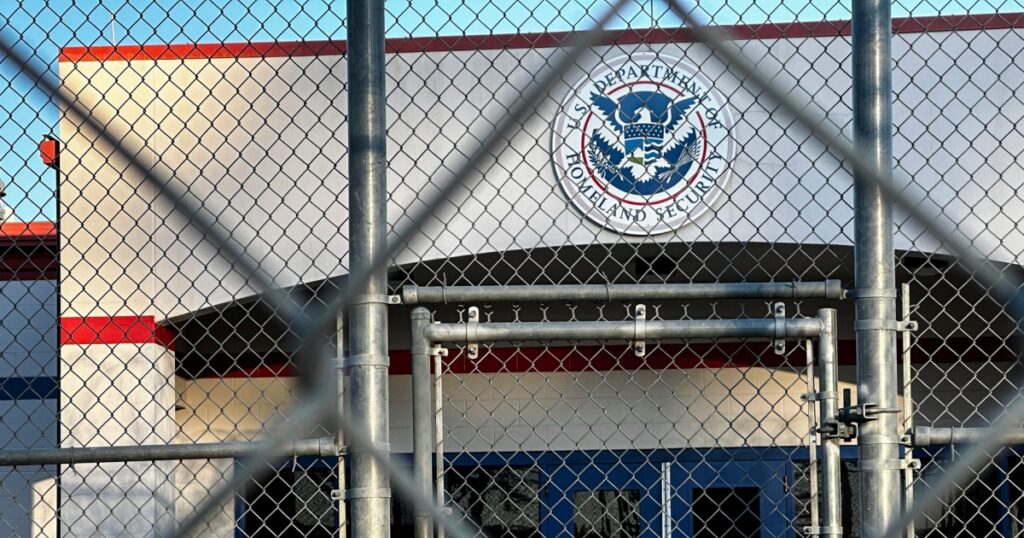At least three students recently detained by the Trump administration and put in deportation proceedings have been taken to highly remote detention centers in rural Louisiana that human rights groups have called “a black hole.”
Students Mahmoud Khalil, Rumeysa Ozturk and Alireza Doroudi were arrested near their homes, then taken hundreds of miles away to desolate, rural detention centers in a state that, since President Donald Trump’s first administration, has become an increasingly critical part of the country’s immigrant detention apparatus.
The federal government has broad authority to transfer immigrants facing deportation to different facilities. But advocates and experts said that there have been major human rights abuses in facilities in this region and that the Trump administration has sent the students to a very conservative jurisdiction that is highly favorable to its immigration policy goals.
“They’re being placed in facilities that have pretty horrendous conditions, a lot of difficulties with access to counsel and in what is really a more hostile legal jurisdiction to fight their case for the right to remain in the United States,” said Mary Yanik, the director of the Immigrant Rights Clinic at Tulane Law School in New Orleans. Yanik is also an associate law professor at the university.
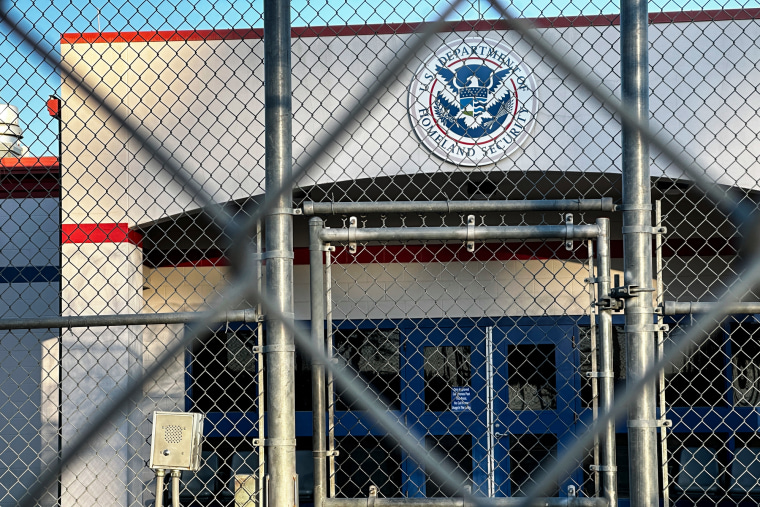
The Department of Homeland Security did not comment on its decision to detain the students in Louisiana, allegations against facilities in the state or the role the facilities play in the administration’s immigration agenda. The White House did not respond to a request for comment. In court documents related to the arrest of Khalil, the administration said overcrowded facilities and bedbugs in the Northeast led to its decision to send him to Louisiana.
Khalil, a legal permanent resident and pro-Palestinian protest leader at Columbia University, was arrested at his apartment building in New York City on March 8, before being shuttled to a detention center in New Jersey and then taken some 1,000 miles away to the Central Louisiana ICE Processing Center in Jena, Louisiana.
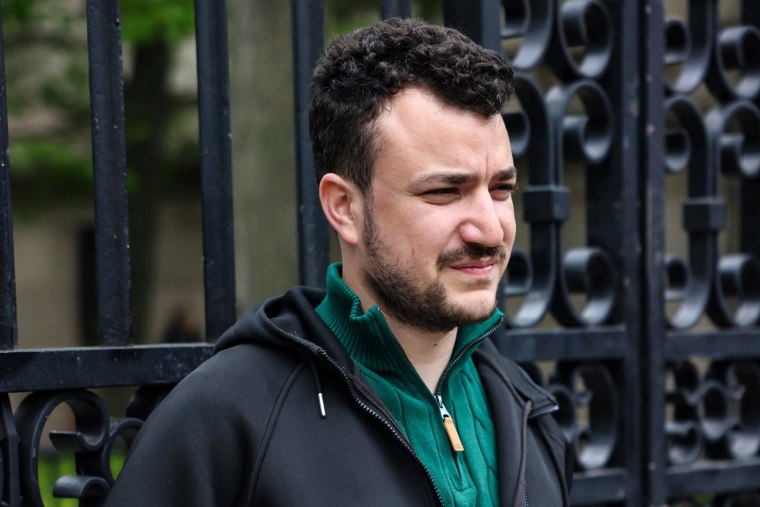
Khalil’s lawyers are fighting to have him returned to the Northeast and released in a case challenging his arrest and detention that was recently moved to a New Jersey court. Meanwhile, his separate deportation proceedings have begun playing out in front of an immigration judge in Louisiana.
Last week, Alireza Doroudi, a doctoral student from Iran who was studying at the University of Alabama, was arrested off campus by federal immigration authorities with little known about his case. Immigration and Customs Enforcement’s detainee locator has since revealed Doroudi was also taken to the Central Louisiana ICE Processing Center in Jena.
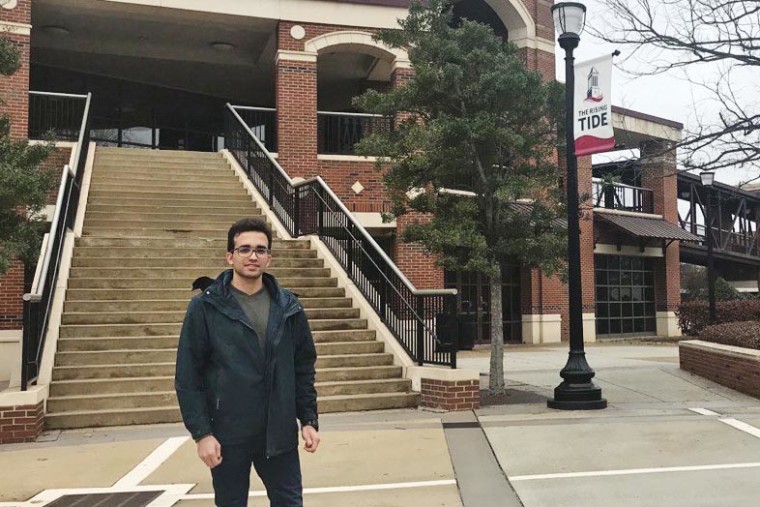
The same day, Tufts University doctoral student Rumeysa Ozturk, a Turkish national who was in the United States with a valid student visa, was pulled off the street on her way to break her Ramadan fast with friends in an arrest by plainclothes agents captured on video.
She was taken to the South Louisiana ICE Processing Center in Basile, Louisiana, which holds female detainees.
Ozturk was transferred to Louisiana without the administration notifying her legal team, her lawyers said in court documents. The documents said that her location was withheld for nearly 24 hours. Her lawyers said moving Ozturk to Louisiana was consistent with “ICE’s pattern and practice of moving people detained for their speech to distant locations incommunicado and in secret.”
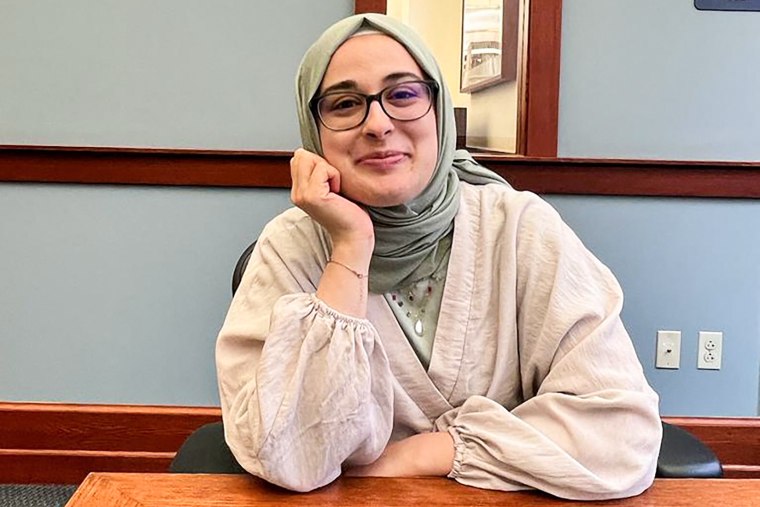
Secretary of State Marco Rubio said last week that the State Department has revoked 300 or more student visas, as the White House increasingly targets foreign-born students whose main transgression seems to be activism. The administration has accused some of the students of engaging in activities and activism supporting Hamas, which the students and their attorneys deny.
Some considerations the federal government takes when placing immigrants in detention are how long someone might be in detention, the current availability of beds as well as a person’s nationality, said Kathleen Bush-Joseph, a policy analyst with the U.S. Immigration Policy Program at the Migration Policy Institute, a nonpartisan think tank.
“Deportation proceedings for people who are detained move much faster than those who are released, because the immigration courts prioritize those cases,” she said.
Louisiana became a hub for holding thousands of immigrants in ICE custody during Trump’s first term, as the administration expanded the detention of migrants and asylum-seekers.
“Louisiana has detained more immigrants than any other state, save Texas,” Yanik said.
There are currently more than 7,000 immigrants detained by ICE in Louisiana, according to the Transactional Records Access Clearinghouse based at Syracuse University. There are nearly 48,000 people in ICE custody nationwide, the highest number since 2019.
Reports of human rights abuses
NBC News has previously reported on allegations of human rights abuses in Louisiana detention facilities. In 2024, a report by the Department of Homeland Security documented problems at the Basile facility including a mosquito infestation and a lack of sufficient medical staff.
In an August 2024 report titled “Inside the Black Hole,” multiple groups said they documented “systemic human rights abuses” against immigrants in the facilities, which included the detention centers in Jena and Basile where the students have been taken.
“There was deprivation of human necessities, abusive and discriminatory treatment. There was medical abuse and neglect,” said Sarah Gillman, a co-author of the report and the director of Strategic U.S. Litigation at the nonprofit Robert F. Kennedy Human Rights.
The report and others have documented for years that detainees also are exposed to unsanitary conditions, including yellow, undrinkable water; moldy food; insect infestations; and inadequate access to basic hygiene supplies.
Gillman said the rights groups also found that in past cases, immigrants detained in Louisiana lacked access to lawyers and faced other major obstacles such as a lack of translators and having to prepare important documents in their deportation cases in English, a language some of them didn’t speak.
“We met many, many, many people who didn’t have access to lawyers who could help them, didn’t have access to their families, didn’t have access, really, to the outside world,” she said.
GEO Group, which runs the facilities where the students are detained, did not immediately respond to a request for comment about the allegations in the report.
ICE did not immediately respond to a request for comment on the report and allegations of human rights abuses in its Louisiana facilities. But it previously told NBC News during the Biden administration that it “takes its commitment to promoting safe, secure, humane environments for those in its custody very seriously — the agency provides comprehensive policy and strict oversight for the administrative custody of one of the most transient, diverse populations of any correctional or detention system in the world and holds firm to continuous review of the many factors relevant to the continued operation of each of its facilities.”
The students detained in Louisiana are in deportation proceedings before an immigration judge, in a court system that is separate from the criminal justice system. A concern of immigration attorneys and advocates is that any appeal in the students’ cases would fall under the 5th U.S. Circuit Court of Appeals, which is among the most conservative jurisdictions in the country.
The jurisdiction where an immigrant is detained has “very different precedents which can really affect the outcomes of immigrants’ cases and requests for everything from release from detention to the grant of asylum or other immigration benefits,” Bush-Joseph said.


